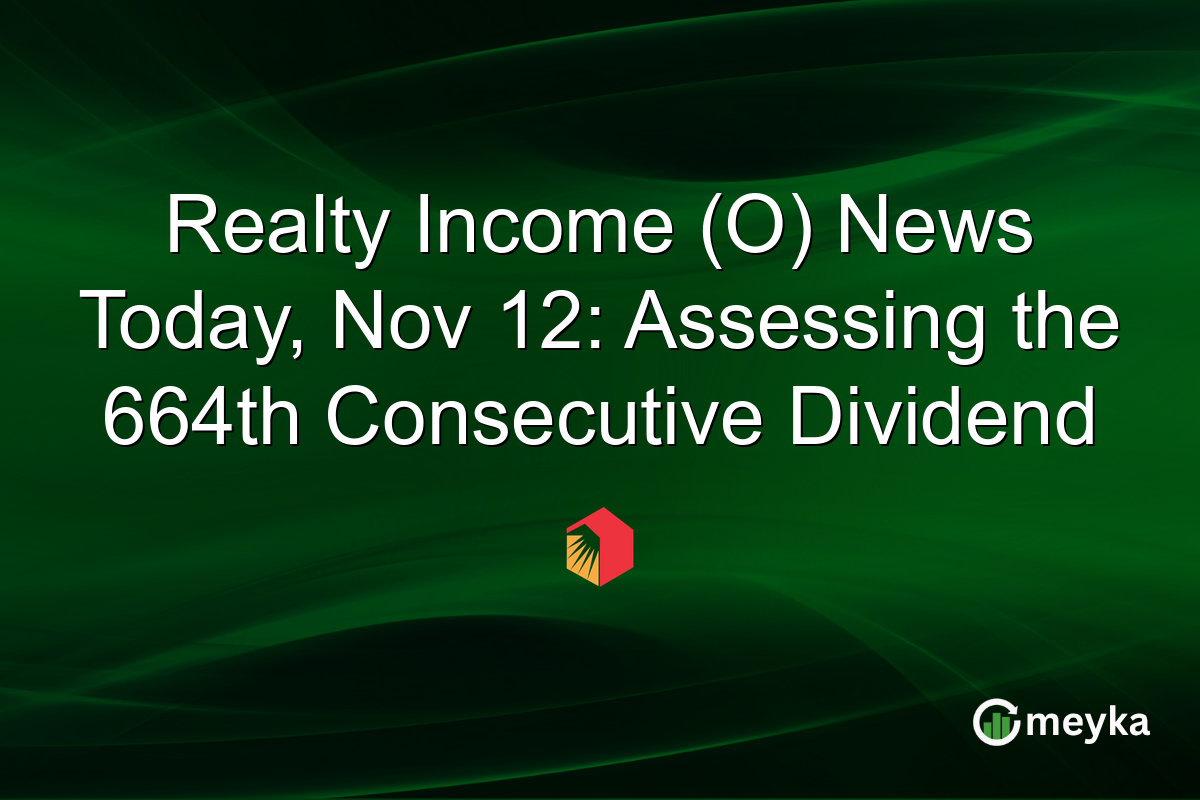Realty Income (O) News Today, Nov 12: Assessing the 664th Consecutive Dividend
Realty Income Corporation, known as “The Monthly Dividend Company,” is a beacon for income-focused investors largely due to its remarkable track record of consistent monthly dividend payouts. Today, with its 664th consecutive dividend, the stock has come under scrutiny, especially after receiving a ‘SELL’ investment rating. Realty Income stock has shown fluctuating growth trends, which may signal broader concerns about its financial health and future growth prospects.
Continue Reading on Meyka
This article is available in full on our main platform. Get access to complete analysis, stock insights, and more.
Read Full Article →





